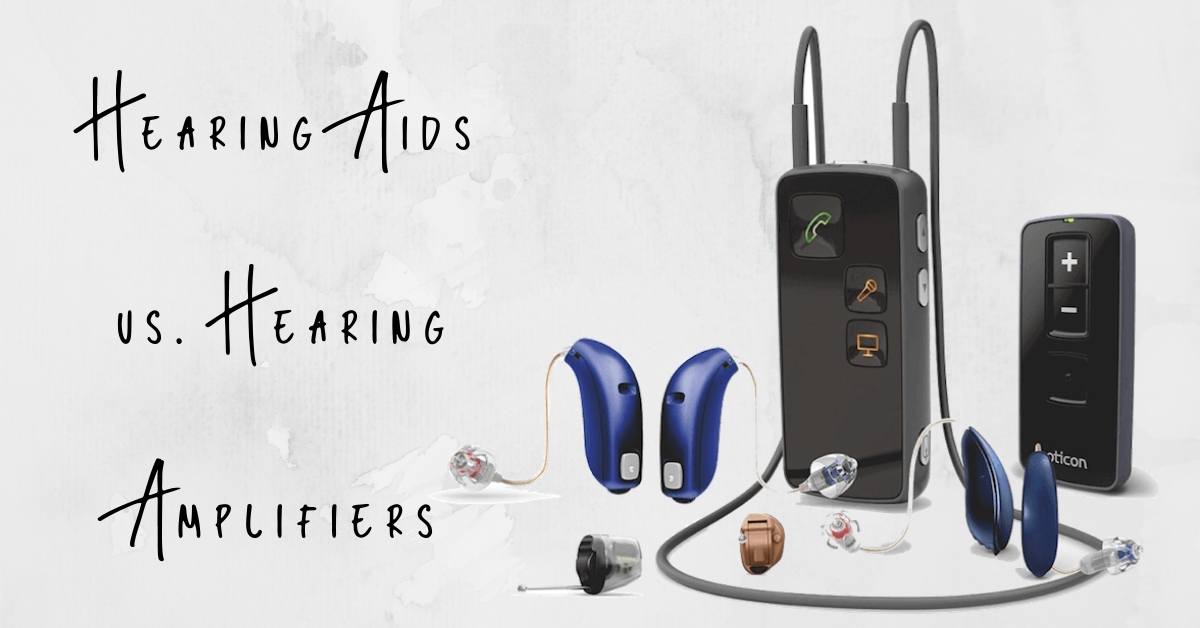Both hearing amplifiers and hearing aids have similar purposes – to help elevate and enrich your hearing experience, but the differences between the two are crucial as they will impact your hearing health now and in the long run.
This article offers the necessary information that distinguishes hearing aids from hearing amplifiers, so that you may take the correct course of action to attend to your hearing health and experience.
Cost-effectiveness, expediency, and ease of purchase will need to be weighed against the need for your vigilance in continual hearing health, assessment of your hearing and your desire to invest in what’s best for you!
Hearing aids
Hearing aids are classified as “medical devices” and have strict codes to adhere to imposed by government-mandated regulatory bodies. An audiogram is a test that is taken to determine the needs of the user then hearing aids are configured and “fitted” by a certified audiologist.
Hearing aids are sophisticated hearing devices that incorporate “signal processing”. The digital signal processing ability of the hearing aid involves features such as noise reduction and feedback management just to name a few. The features of the hearing aid allow for a high level of configuration specific to the nature of the hearing loss, physical make-up and the lifestyle of the user.
Hearing amplifiers
Personal sound amplification products are also known as PSAPs. They have the ability to amplify all the sounds in your environment but have no ability to correct the sounds delivered to your ear.
PSAPs are composed of a power source, microphone, amplifier, speaker and volume controller.
The box which catches the sound can be worn around your neck or attached to your belt and comes with an earpiece. They are not for fulltime use and are often used for recreational activities such as bird watching or listening to distant conversations. These devices are easy to purchase and have a wide range of prices offering an attractive yet not altogether appropriate “alternative” to hearing aids.
FDA Definitions for Hearing Aids and PSAPs
According to the Regulatory Requirements for Hearing Aid Devices and Personal Sound Amplification Products provided by the Federal Drug and Administration Agency (FDA):
“A hearing aid is a wearable sound-amplifying device that is intended to compensate for impaired hearing.”
According to the Regulatory Requirements for Hearing Aid Devices and Personal Sound Amplification Products furnished the FDA: “A PSAP is a wearable electronic product that is not intended to compensate for impaired hearing, but rather is intended for non-hearing impaired consumers to amplify sounds in the environment for a number of reasons, such as for recreational activities.”
Please take note of the difference between hearing aids and PSAPs.
The dangers of PSAPs
PSAPs do not require medical examinations, prescription or “fitting” in order to be bought or used. They are much cheaper and easier to acquire than hearing aids and can, therefore, be used negligently. PSAPs are not regulated medical devices like hearing aids. They are in no way equivalent to hearing aids.
Hearing loss is not addressed when using a PSAP. Conversely, improper use of PSAPs could contribute to hearing loss.
Which one is for you?
Take stock of your needs! Do you need sound amplification for specific activities such as hunting and birdwatching or listening to lectures or musical events from a distance?
If so, then PSAPs are a viable option.
However, if you have noticed a gradual decrease in your hearing abilities including muffled speech, distorted sounds, or an inability to distinguish speech from background noise you need a proper hearing assessment. Unfortunately, about 60 million people in the US alone are in need of but are without hearing aids!
Desert Valley Audiology
To be sure of the status of your hearing health, an assessment is the first serious step.
Do not let social stigmas or vanity hinder the health of your hearing. At Desert Valley Audiology, we are here to cater to and enhance your hearing health. Whether it is for you or someone close to you, we encourage you to make an appointment and begin the empowering road to a healthy, full, hearing experience now and into your future.

